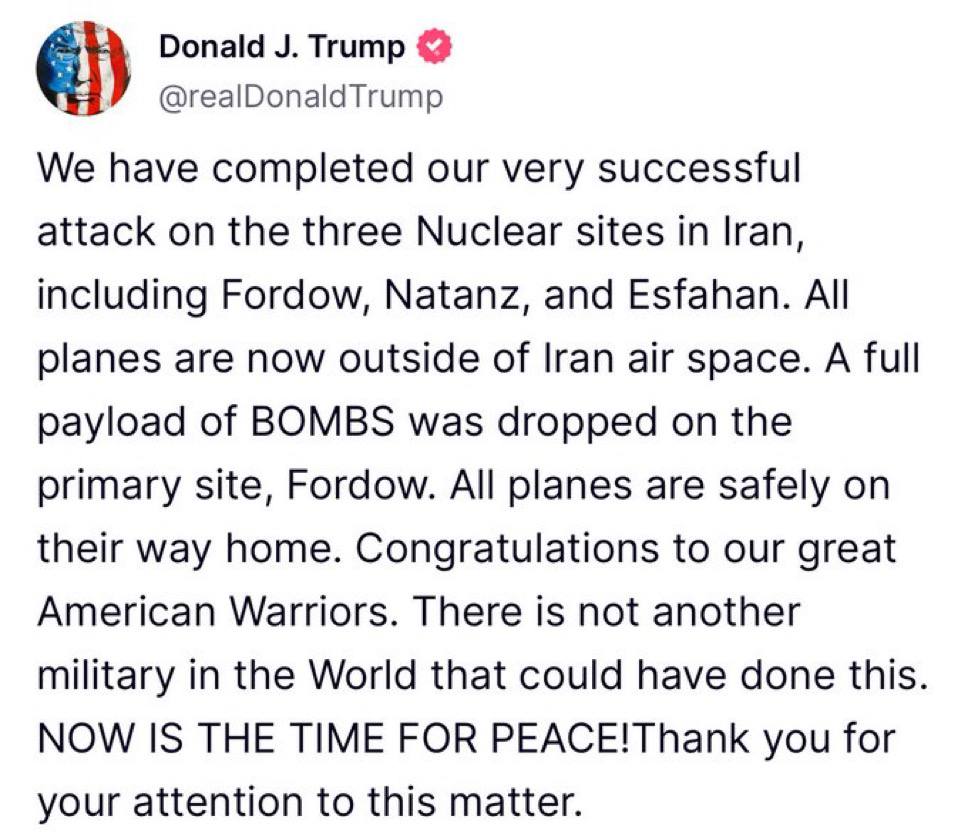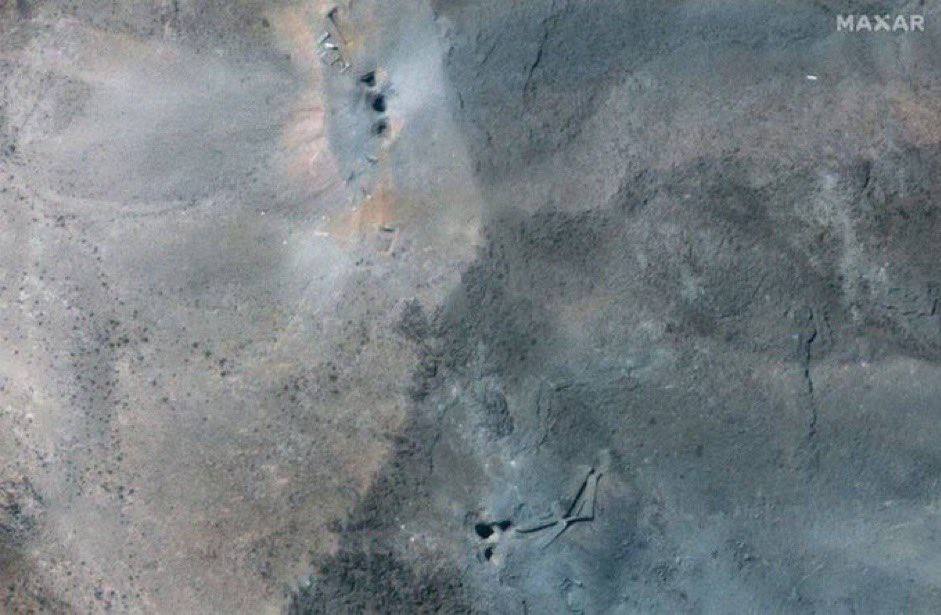After the major fiasco surrounding his claim to "end the war in Ukraine in 24 hours" and following a shaky ceasefire between the U.S. and the Houthis, Donald Trump was in desperate need of a way to save face. That opportunity appeared in the form of the Iran–Israel war.
You might be up to date with the current politico-military events, but in case you're not, here’s a brief recap: after bombing Gaza to smithereens and committing genocide against civilians — all in the name of hunting down Hamas — Israel has now turned its attention to Iran.
Israel attacks Iran
On Friday, 13th June 2025, Israel initiated strikes against Iran’s nuclear and military facilities. The Western press responded with familiar rhetoric: “Israel has the right to defend itself.”
Israel has attacked several Iranian nuclear facilities and military sites, and carried out assassinations of top military officials and nuclear scientists. An initial wave of strikes was carried out on Friday morning. A second, separate attack on the city of Tabriz, northwest Iran, was reported by local media later on Friday.
In the initial stage, Iran is paralyzed — no functioning air defenses, no response, taking hit after hit. Israel begins to believe this could be an easy victory, one that might even culminate in regime change.
Iran's response to Israel
The situation, however, grows more complex when Iran, recovering from the initial shock, begins to retaliate. Waves of missiles are launched toward Tel Aviv. The Iron Dome, David’s Sling, and other missile defense systems — supported by U.S. and U.K. fighter jets — work around the clock to intercept them. Some are shot down, but more and more begin to strike their targets in the Israeli capital and beyond. Tel Aviv starts to resemble Gaza, and the image of Israeli invincibility quickly begins to erode.
Realizing the tide may be turning, Israeli leaders grow desperate to draw the United States fully into the war. Trump seizes the opportunity and, under the banner of “decapitating the nuclear program” and “Iran must not have the bomb,” promises a direct strike against Iranian nuclear facilities.
US enters the war on behalf of Israel
On a Saturday evening, the strike takes place: the United States attacks Iran — in blatant violation of international law and without presenting any concrete evidence that Iran is anywhere near producing a nuclear weapon.
"The U.S. military carried out massive precision strikes on the three key nuclear assemblies in the Iranian regime: Fordo, Natanz and Isfahan,"
Defense Department officials confirmed that American B-2 Spirit bombers were used to strike Fordo early Sunday local time, with each of those B-2s armed with U.S.-produced "bunker-buster" bombs known as the GBU-57 Massive Ordnance Penetrators, or MOPs — bombs so heavy that they could only be dropped by a B-2.

Trump wastes no time in declaring victory, boasting that he has “obliterated” Tehran’s nuclear program. But...
But the administration has not yet produced the evidence to back that claim, Congress has yet to be briefed on the attacks, and nuclear experts at home and abroad are cautioning that any damage assessment is premature without a closer inspection of the targeted sites.
“There’s zero evidence that I’ve seen that the nuclear program was completely and totally obliterated as Donald Trump has claimed,” House Minority Leader Hakeem Jeffries (D-N.Y.) told reporters Monday in the Capitol. “No evidence that has been presented to Congress to suggest that that has occurred.”
Satellite imagery also suggests that the nuclear material was likely moved out of the targeted site several days prior to the strike.

Some very expensive holes into the mountain - estimated around 300 mil $
Iran's response to US
Next comes Iran’s turn to save face. This is a tricky situation, where a response is required but without involving US in a full fledged war.
A military response is swiftly arranged: Iran will target a U.S. military base in Qatar. The strike is announced in advance, likely to minimize casualties. Only a couple of missiles are launched, and they are probably intercepted. Still, a box is checked — retaliation against the U.S.: complete.
Donald Trump described the attack as "very weak" and "expected", and suggested peace in the region could proceed.
Ceasefire and Trump's victory
A ceasefire is brokered — a necessary move for several reasons.
Trump is quick to position himself as the architect of peace, claiming credit for preventing World War III in the Middle East. He presents the ceasefire as a personal diplomatic triumph, one that ended hostilities without dragging the U.S. — and the rest of the world — into full-scale war.
Israel gets a breather. Time to rebuild its defenses, repair damage, and, critically, replenish its stockpile of missile interceptors.
Iran, too, welcomes the pause. It recognizes the need to produce more missiles and reinforce its defense infrastructure. The nuclear program, far from being dismantled, will continue — now with an added emphasis on hardening and secrecy.
Beneath the surface, both nations begin preparing for the next war.
Meanwhile, Trump can set his sights on collecting a Nobel Peace Prize.







